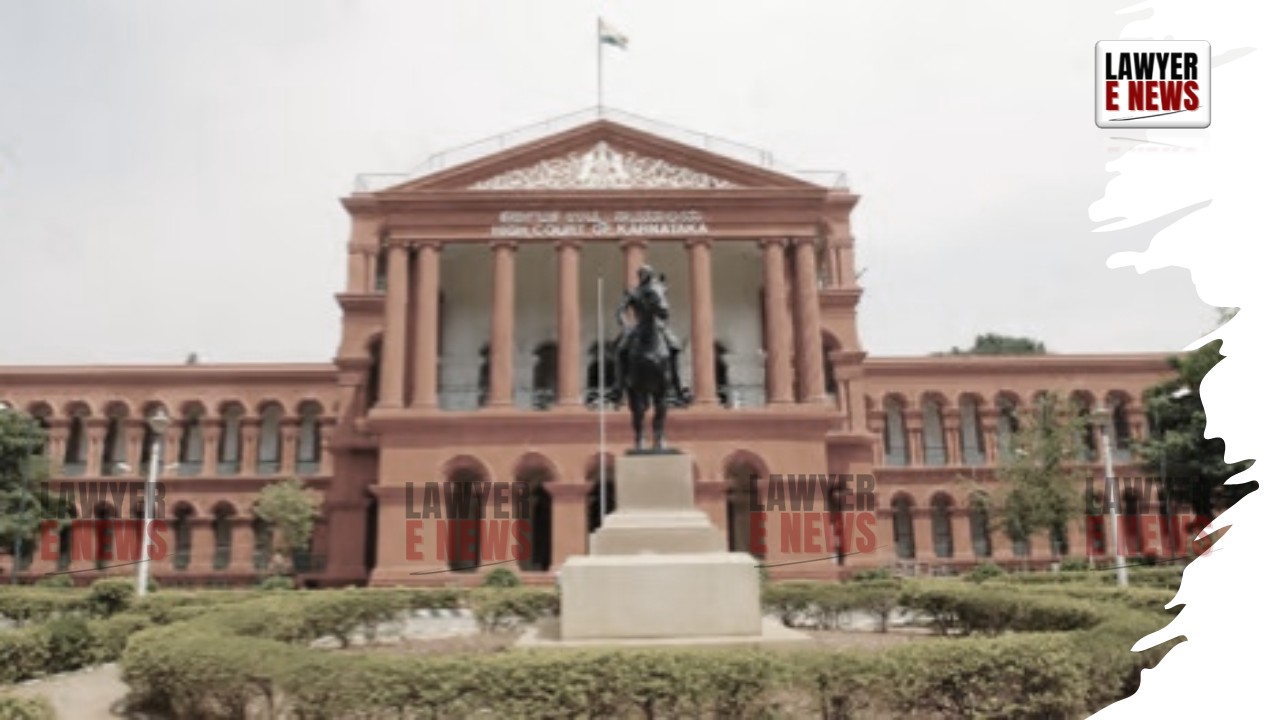-
by Admin
15 February 2026 5:01 PM



Directs Karnataka Government to Address Medical Personnel Shortage and Upgrade Health Infrastructure - Karnataka High Court delivered a landmark judgment , a suo motu public interest litigation (PIL) based on media reports highlighting acute shortages in healthcare services across the state. The division bench, comprising Hon’ble Chief Justice N.V. Anjaria and Hon’ble Justice K.V. Aravind, held that the state has a constitutional obligation to ensure healthcare services under Article 21 of the Constitution.
In its detailed judgment, the Court directed the Karnataka government to address staff shortages, upgrade health infrastructure, and implement systematic reforms to improve public healthcare delivery.
"Failure to Ensure Basic Healthcare Is a Violation of the Right to Life," Says Court
Reaffirming the importance of the right to health as part of the right to life under Article 21, the Court emphasized: "The preservation of human life is of paramount importance, and the state has a constitutional obligation to provide adequate healthcare facilities."
The judgment relied on precedents such as Paschim Banga Khet Mazdoor Samity v. State of West Bengal (1996) and State of Punjab v. Ram Lubhaya Bagga (1998), which upheld the state's duty to safeguard public health.
Acute Shortages in Medical Personnel Highlighted
The Court took note of data provided in the affidavit filed by the State, which revealed alarming shortages across key medical positions:
605 vacancies for Medical Officers out of 2,355 sanctioned posts.
1,203 vacant posts for Pharmacists out of 2,932 sanctioned posts.
906 Nursing Officer vacancies out of 6,750 sanctioned posts.
10,253 Group-D vacancies out of 16,897 sanctioned posts.
The Court observed: "The staggering number of vacancies in critical healthcare roles is unacceptable in a welfare state. Immediate recruitment and continuous monitoring are necessary to ensure uninterrupted healthcare delivery."
"Judicial Intervention Necessary to Remedy Healthcare Deficiencies in Karnataka"
The PIL originated from a media report in The New Indian Express (October 16, 2023), which highlighted a shortfall of 16,500 medical personnel and 454 Primary Health Centers (PHCs) across Karnataka. Taking suo motu cognizance, the Court observed:
"Judicial intervention becomes necessary when the state fails to meet its constitutional obligation to safeguard public health."
The Court directed the formation of committees at both state and district levels to monitor staffing, infrastructural upgrades, and implementation of healthcare policies.
"Recruitment Process Must Be Continuous and Monitored," Directs Court
The Court expressed concern over delays in recruitment processes initiated as far back as 2022. It ordered the State Government to:
Expedite the recruitment of medical staff and complete the process within a stipulated timeline.
File periodic affidavits detailing progress in recruitment and infrastructural upgrades.
The Court directed: "Recruitment must be a continuous process, reviewed every six months based on arising vacancies to ensure healthcare services are not disrupted."
Healthcare Infrastructure Must Be Upgraded Immediately
Acknowledging a shortfall of 454 PHCs, the Court highlighted deficiencies in both rural and urban healthcare systems. It directed the Karnataka Government to:
• Identify districts with the most critical infrastructure gaps.
• Establish new PHCs and health and wellness centers based on population needs.
• Upgrade existing facilities, including availability of medicines and equipment.
The judgment stated: "The lack of adequate health infrastructure exacerbates the healthcare crisis, forcing citizens to travel long distances for basic medical services. This must be remedied on a priority basis."
Budget Utilization and Monitoring of Healthcare Schemes
The Court stressed the importance of proper budgetary allocations and efficient utilization of funds under state and central healthcare schemes, including the Ayushman Bharat-Pradhan Mantri Jan Arogya Yojana (AB-PMJAY).
The Court noted: "Budgetary provisions must serve the intended purpose of bridging healthcare gaps, with effective planning and monitoring mechanisms to prevent misuse or underutilization of funds."
Court Directs Formation of Monitoring Committees
To ensure sustained progress, the Court ordered the formation of committees at the state and district levels:
State-Level Committee: Headed by the Secretary, Department of Health, to oversee medical staff vacancies, infrastructure upgrades, and healthcare scheme implementation.
District-Level Committees: Chaired by Deputy Commissioners, to gather data on vacancies and infrastructure gaps and coordinate with the state committee.
These committees are required to submit detailed action plans and progress reports every six months.
"Healthcare Deficiencies Demand Urgent Attention," Court Warns
The Court expressed concern about the broader implications of inadequate healthcare, stating: "Illicit trafficking in narcotics and health hazards like drug addiction among youth only underscore the urgent need for robust public healthcare systems."
It further called on the state to focus on preventive healthcare measures alongside curative services.
Disposing of the PIL, the High Court directed the Karnataka government to file affidavits every six months detailing compliance with the judgment.
The Court concluded: "The State Government must remain vigilant and proactive in its constitutional duty to provide accessible, affordable, and quality healthcare to all citizens. This is not just a legal obligation but a moral imperative."
Date of Decision: January 23, 2025
